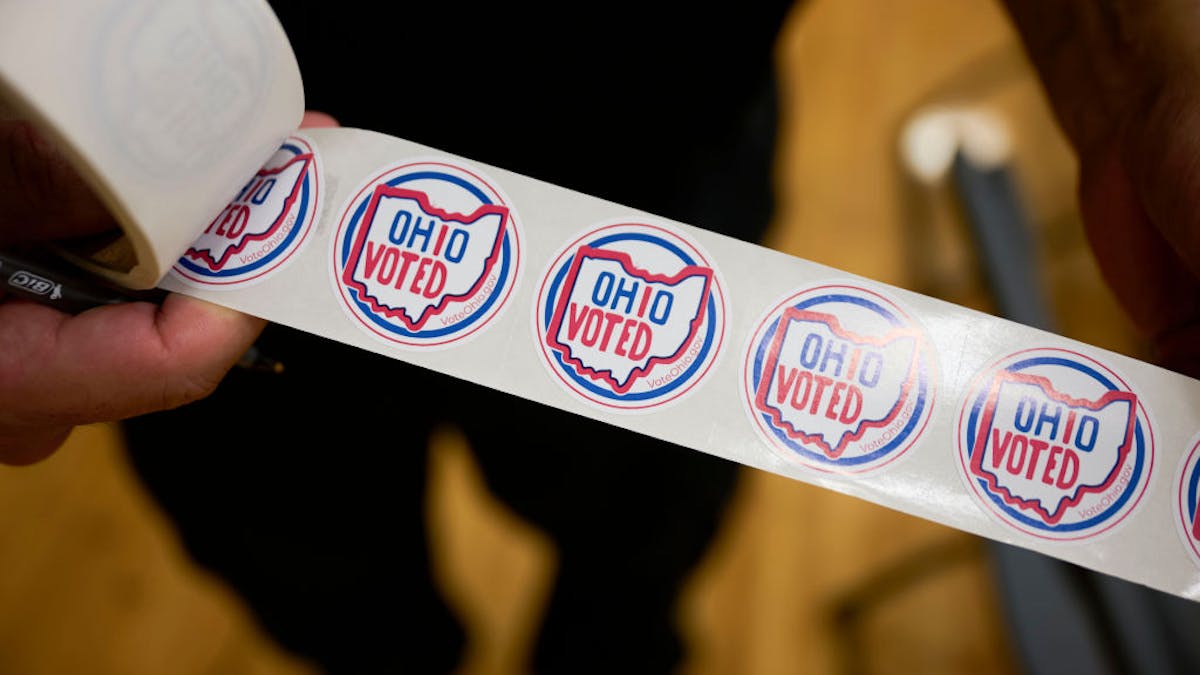


This week, the Sixth Circuit heard oral argument in a lawsuit that could decide whether foreign nationals — and the partisan groups they bankroll — can continue pouring foreign dark money into state ballot measures. At issue is a law Ohio enacted last year to ban both direct and indirect foreign contributions to these critical campaigns. With other states passing similar bans — eight as of this year — progressive groups are hoping the courts will intervene and keep their foreign cash flowing.
Ohio’s foreign funding ban did not emerge in a vacuum. Over just two years, Ohioans saw a stunning $20 million in foreign-tied funds flood their state. The money came through a group called the Sixteen Thirty Fund, a kingpin of liberal dark money. One of its top donors is a Swiss billionaire named Hansjörg Wyss — a man who admits he “never felt the need to become an American.”
That hasn’t stopped Wyss from spending vast sums of his foreign fortune to push American politics to the Left. That includes a staggering $280 million to the Sixteen Thirty Fund, which simultaneously spent $130 million supporting progressive ballot measure campaigns in 26 states on issues such as abortion, taxes, and laws governing American elections.
That is not democracy, it’s foreign influence peddling. Ohio’s law puts a stop to it by preventing foreign billionaires from laundering their funding through groups like the Sixteen Thirty Fund. Predictably, the Left is suing.
The case is being led by none other than Marc Elias, Wyss’s own lawyer and the Democratic Party’s top election attorney. Elias is arguing — explicitly — that foreign nationals should be free to influence American politics. In fact, Elias argues that ballot measures — the process by which we, the people, directly decide fundamental issues and the basic rules of our democracy — must be exposed to foreign interference.
This isn’t the first time Elias has tried to overturn foreign funding laws. When Kansas adopted a ban earlier this year, Elias promptly sued on behalf of Kansans for Constitutional Freedom (KCF), a left-wing group that has already taken $1.6 million from the Sixteen Thirty Fund. KCF demanded that courts allow it to keep funneling foreign-tied money into Kansas.
That lawsuit failed spectacularly. An Obama-appointed federal judge upheld the ban, citing the clear authority states have to protect democratic self-government from foreign intrusions. That ruling relied heavily on an earlier opinion from none other than the Sixth Circuit, which ruled against a previous attempt by Elias to block Ohio’s law. That opinion, written by Judge Amul Thapar, powerfully asserted Ohio’s right to “prevent foreign influence” and bar noncitizens from “activities of democratic self-government.”
Elias and company seem to have missed the memo. During the argument, an Elias attorney representing Ohio Progressive Asian Women’s Leadership (OPAWL) struggled to define who, exactly, makes up the American “community.” Might it be citizens of the United States? Not according to Elias.
In public, Elias and OPAWL have carefully presented this lawsuit as a narrow case aimed at protecting green card holders. In court, however, they went much further, claiming that states are powerless to prevent U.S.-based groups, such as the Sixteen Thirty Fund, from receiving foreign money from noncitizens and using it to reshape state constitutions. In fact, they argued that the Constitution requires states to allow foreign money even if it pours in by the hundreds of millions, because voters, not campaigns, make the final decision. Judge Raymond M. Kethledge pointed out that the Elias attorney’s argument was “blinding oneself” to reality.
The lawyer for the Ohio Education Association also joined the fray, arguing that compliance with the law would be too burdensome. When questioned, though, he admitted the union routinely segregates funds in other contexts, proving it is possible to comply — the union just does not want to.
The question at the heart of this case is simple: Should foreign billionaires — including those doing the bidding of Russia and China — be free to bankroll campaigns aimed at rewriting state constitutions, the political DNA of our republic?
The answer is clearly no. Non-citizens cannot vote, serve on juries, or fund the campaigns of politicians running for office. To bar foreign nationals from influencing elections but allow them to finance ballot measures that can reshape the rules of those same elections is absurd and undermines the idea of democratic self-government.
That is why eight states this year have passed laws like Ohio’s. States have a duty to protect the integrity of their constitutions from foreign interference, as Ohio has done.
The Sixth Circuit already ruled in favor of Ohio’s law once. It should do so again — decisively.
* * *
Jason Snead is the Executive Director of Honest Elections Project Action.
The views expressed in this piece are those of the author and do not necessarily represent those of The Daily Wire.

Continue reading this exclusive article and join the conversation, plus watch free videos on DW+
Already a member?
